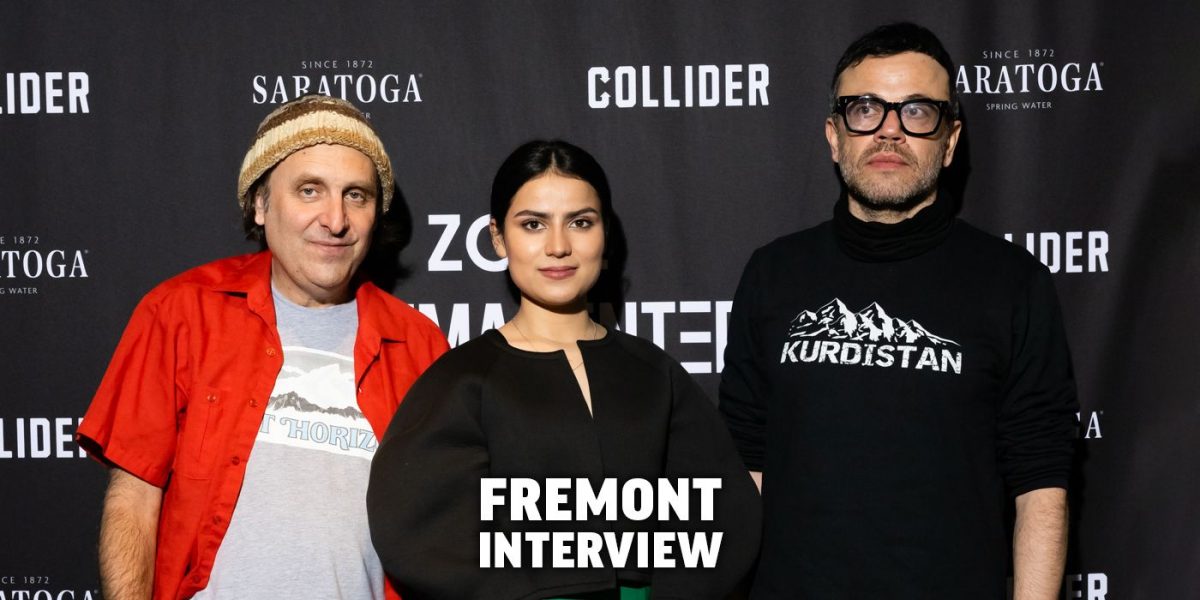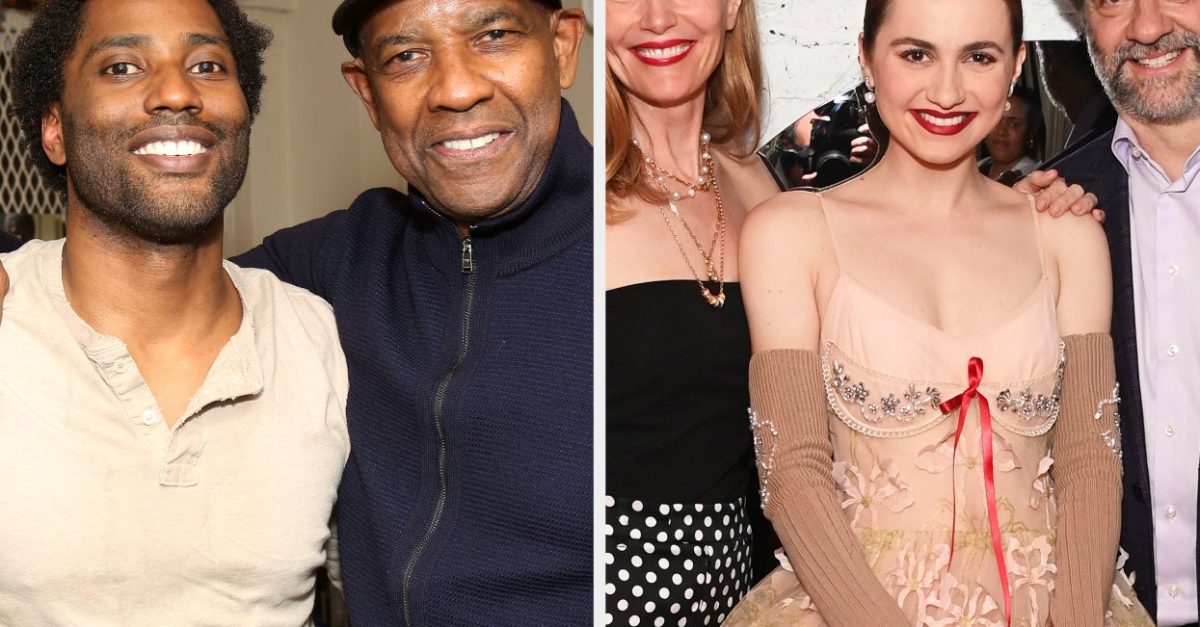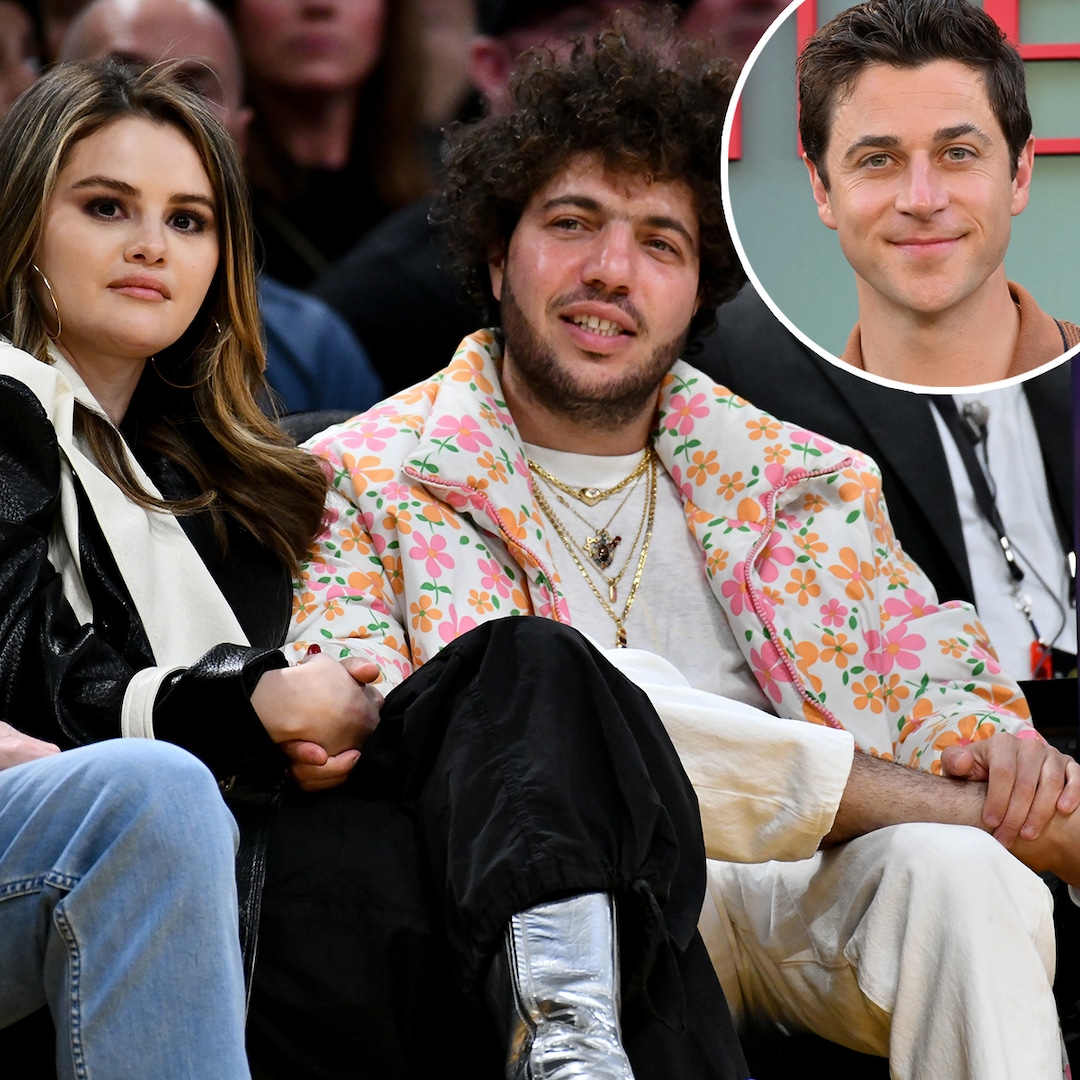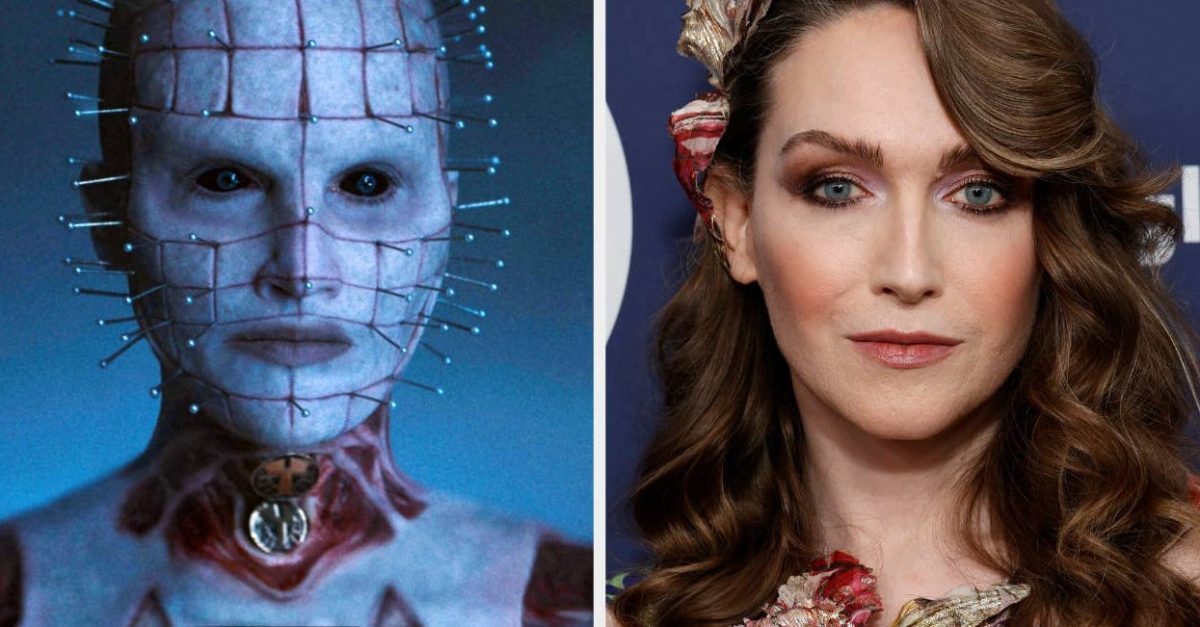
Fremont Cast & Director Discuss the Inspiration Behind the Sundance Film
Jan 31, 2023
Director Babak Jalali’s Sundance feature, Fremont, is a restless immigrant tale that captures a sense of longing for a home left behind, and the human search for connection. Filmed in stark black and white, and often zeroed in on the film’s focus, Donya, played by Anaita Wali Zada in her onscreen debut, Fremont is an intimate, charming, and melancholic portrayal of loneliness, and those forgotten by a country they served.
Donya is a refugee living in a small Afghan community in the Bay Area. Previously a translator for the US troops, she immigrated to America to avoid the Taliban, leaving her family and home behind. Though she has a job at a factory neatly packaging pleasantries into fortune cookies, Donya has little income, no insurance, and no family or friends. Her guilt keeps her up at night, which prompts Donya to seek prescription sleeping pills from a psychiatrist (Gregg Turkington). When the doctor insists he needs a few more sessions with her before prescribing, they begin a journey of unpacking some of Donya’s heavy burdens. Fremont also features The Bear’s Jeremy Allen White as Daniel, a mechanic and someone Donya finds a connection with.
COLLIDER VIDEO OF THE DAY
Following Fremont’s premiere at Sundance, Jalali, Zada, and Turkington visited the Collider Studio in Park City. While talking with Collider’s Steve Weintraub, Zada tells us how she went from being a journalist in Afghanistan to a leading role in a Sundance film. Jalali shares the inspiration behind Fremont’s story, explains the use of black and white, as well as the method behind how he and cinematographer, Laura Valladao, framed scenes, and how the cast and crew made Fremont possible on an indie film budget and schedule. Turkington discusses his “erratic, oddball” character, and expresses his admiration for co-star, Zada, and their instant chemistry onset. You can watch the interview in the video above, or read the full transcript below.
Image via Sundance
COLLIDER: The reason I get to be here today is to talk to the people behind Fremont, and I really want to give you a congratulations and say how much I enjoyed your movie. Most people who are watching this interview right now will have not seen the film yet so how have you been describing it to friends and family?
BABAK JALALI: Thank you for having us here. To friends and family, to anyone, it’s a story about a young Afghan woman who used to work as a translator for the US military, and has recently moved to the Bay Area and lives in the city of Fremont, which is right outside San Francisco, and by day works in a Chinese fortune cookie factory. It’s about someone restarting their life, a stranger in a strange land.
Anaita, you have never made a film before, and I really want to know how you got involved in this, and what the experience was like being front and center in a movie.
ANAITA WALA ZADA: Thank you so much. Yes, that was my first time acting in a movie. First, I received an email from one of my friends, and I sent an email to Babak, and we had so many Zoom [calls]. After that we decided to work together. Actually, he decided to work with me [laughs].
[Laughs] I was going to say, it was probably his decision.
ZADA: Yeah, exactly.
What was it like, the experience of making a movie compared to what you thought it would be?
ZADA: I have to say, I worked as a journalist in Afghanistan for two years, so I had experience in front of [the] camera and microphone, so it was, for me, easy to be in front of cameras. But working with the cast and film crew and director was like the first time. I enjoyed it and I learned a lot from it, and also, from Daniel’s character.
You play an integral part in this film. Can you talk about who you play and what it was about this part that said, “I want to do this?”
GREGG TURKINGTON: Well, I play a doctor, a psychiatrist, who’s – I’ve heard somebody call him eccentric recently, which was maybe a kinder description than I’ve been using, what I’ve been telling people about it. But yeah, just an oddball psychiatrist. I guess one of these people that, probably, when he started in the profession was quite good, but has maybe gone to seed over the years.
Basically, when Babak reached out and I read the script, I was just excited to have been asked, you know, as opposed to like when I got the script to audition for the Elmer Fudd movie. No. But this, I mean it’s a beautiful, beautifully written script and it’s kind of a dream, really, to get something like that and be offered a role in it when the quality is glaring from the get-go.
Image via Photagonist
I really enjoyed the way you shot it in black and white, and how you framed all the scenes. Can you talk about how you decided on the aesthetic of the film?
JALALI: Yes, Laura Valladao, who’s the cinematographer on the film, and I, we just had a gut feeling this would work better in black and white. To sort of, let’s say, show the, in essence, uniformity of places, whether it’s a commuter town like Fremont or a major city like San Francisco. And having locations in mind, such as the cookie factory and the inside of the owner’s apartment, the psychiatrist’s office, everything just seems to us, to me and Laura, to work better in black and white.
The framing, it’s primarily static. [There are] some handheld motion shots in motion when Donya’s walking around the city, but the static element is to, let’s say… Media photography was a big influence in the way we decided to shoot this film – Medium Format photography. I think the great thing about Medium Format photography is that you allow things in your mind to happen within… you imagine what’s happening within the frame. You know what I mean? You don’t expect things to come in and out of it. You expect to focus on what’s there.
With the static elements here, I would hope the audience would really… When they see, for example, Donya and Dr. Anthony in the office of the psychiatrist, they know that what they’re watching, nothing’s going to happen. No one’s going to come into the frame to take a piece of paper or to pass on information. It’s just that which is happening.
There’s a really great scene with you and your boss. I don’t want to talk specifics because it’s too early for anything specific, but there’s a scene with you and your boss in the factory, and it’s a very long take and he’s talking with you. Again, I don’t want to be specific, but it’s very well done. Can you talk a little bit about working on scenes like that where you’re sharing a scene with someone else, and what it’s like when the camera is on you for that long?
ZADA: Yes, I got it. That was the first time I used [those] things, and yeah, it doesn’t feel like [I’m] not being okay with that. I said I had experience in front of a camera, so I’m fine with it.
JALALI: Yeah, also a long take like that, you mentioned without revealing what’s happening, you’re relying on both of them pulling it off, and they literally got it in the first take. Their reactions to each other wasn’t really rehearsed. We didn’t have time for rehearsal, and I don’t like rehearsing anyways. So it was very natural. We just said, “Do this, do that,” and they went with it, and they reacted to each other’s expressions or words, and things like that.
ZADA: One thing I want to add, I really tried to be myself in the movie. Yeah.
Image via Photagonist
[Laughs] That’s right out of the movie, “Yeah.” One of the things about this is, you obviously have to make this on a budget. You had, I’m sure, a tight schedule. So what were some of the challenges that you were up against to try to pull this off with the limitations that you were given?
JALALI: Our limitations were similar to most independent films. We didn’t have too many shooting days, and all these things. COVID was still around, so we were fearful of that. You know, [if] someone falls ill, we have to… “How do we do this?”
TURKINGTON: Which I did.
JALALI: Yes, indeed. But other than that, I mean we had a great production team, Rachael Fung, Sudnya Shroff, George Rush, Laura Wagner, Chris Martin, they were really on top of things. The crew, as well, everyone really, they were good sports, basically. I think everyone really was on board to – how should I say this? We all knew whatever limitations we had, no one was surprised by it. It’s a fact that when you make independent films, you are faced with such things.
But having scenes where, for example, Greg, who’s a professional, who’s done this whole bunch of times, helps, of course, because he’s on top of it from the word go. With Greg, there’s no audition. I wanted Greg for the role because I’ve been a big fan of his for years, so it wasn’t like, “Hey, let’s have an audition, see how you do,” it was kind of like, “Will you be in this film please?” And when he said yes, it was great. When he, for example, sat in front of a non-professional actress, I think his presence helped her, and her presence helped him.
So I think those kinds of things helped us move things forward quicker than we thought we would if that makes sense what I’m saying?
100%. One of the things that I appreciate is that, there are a lot of people who helped America in Afghanistan that have been brought over to America, and I don’t want to say that they’re forgotten about, but they’re forgotten about. Was that one of the reasons why you felt compelled to tell this story?
JALALI: Originally, when I heard about translators living in Fremont, that’s what drew my attention because of the way they were living. They had been forgotten about, neglected, and things like that. The original idea of doing a film about a translator stemmed from that, that I found it shocking, but the story sort of changed. The reality is that yes, there are people who risked their lives for America over there and once they came here, they were abandoned, which is something that’s often repeated in history.
Image via Sundance
Yeah, America’s great at doing this. I can say this is an American. America is great at forgetting people.
JALALI: I’m not American, so I won’t say this. [Laughs]
For the two of you, when you think back on the shoot, what’s the day, or two, that you will always remember?
TURKINGTON: I think just the first scene, even, because I didn’t know exactly what I was getting into, and I’d just met her. From the first scene, I felt so comfortable with her and felt like we had a good chemistry and a good rhythm in what we were doing and that there was no reason to worry. She was very inspirational to me because I felt like this is quite a feat to star in a movie fresh out of Afghanistan, and new to the English language, and here she’s given this incredible burden. Sometimes I thought, “Does she memorize some of this dialogue by the syllable?” Because, I mean, just in seeing you here, I’ve seen how much your English has just really blossomed compared to even then, you know? So I think that comfort level really made it easy.
I don’t think we had to do many takes of anything other than for coverage. We just kind of had this nice rhythm going, and just nailed it, as they say.
ZADA: I want to say, being new to a country, it’s not easy to learn a language and be with people, and make company. So on the set, Gregg, Jeremy [Allen White], Babak, everyone was supportive, and I really appreciate it. And I tried my best.
Image via Photagonist
You did a great job. I could talk a lot more, but we have to wrap due to the time limitations. I’m just gonna say I’m really happy you guys came in. I’m really so happy for you that you’re part of Sundance, and thank you for your time.
ZADA: Thank you so much. I just want to add a little thing. Don’t forget about Afghanistan, about the women of Afghanistan, stay with them, talk about them, remember them, and what’s going on there. They have lost their rights.
Special thanks to our 2023 partners at Sundance including presenting partner Saratoga Spring Water and supporting partners Marbl Toronto, EMFACE, Sommsation, Hendrick’s Gin, Stella Artois, mou, and the all-electric vehicle, Fisker Ocean.
Publisher: Source link
I'm Genuinely Curious If You Think These Nepo Babies Are More Talented Than Their Famous Parents
Tell us how you really feel!View Entire Post › Disclaimer: This story is auto-aggregated by a computer program and has not been created or edited by filmibee.Publisher: Source link
Oct 23, 2024
Selena Gomez’s TV Brother David Henrie Details Meeting Benny Blanco
Selena Gomez isn’t the only one who thinks Benny Blanco is magical. The Wizards of Waverly Place alum’s onscreen brother David Henrie—who stars in and executive produces upcoming sequel series... Disclaimer: This story is auto-aggregated by a computer program and…
Oct 23, 2024
15 Side-By-Sides Of Horror Movie Monsters And Villains Vs. The Actors Who Play Them
I can't believe how some of them totally transform.View Entire Post › Disclaimer: This story is auto-aggregated by a computer program and has not been created or edited by filmibee.Publisher: Source link
Oct 22, 2024
Unreleased Clip of Liam Payne Working on One Direction Song Revealed
"I am absolutely devastated about the passing of my amazing friend, Liam," Niall wrote in a lengthy Instagram statement. "It just doesn't feel real. Liam had an energy for life and a passion for work that was infectious. He was…
Oct 22, 2024











